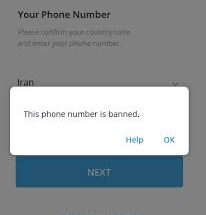How to Register Your Church in Nigeria: A Comprehensive Step-by-Step Guide
Are you planning to start a new church? If so, read the detailed instructions on how to register a church in Nigeria. Churches are NGOs, but their registration criteria are a little different.
Churches are vital to Nigerian society because they provide moral guidance and educate people right behavior. This helps to strengthen the nation’s community.
There has been discussion over the necessity of Nigerian churches becoming registered.
⇒Join us on Telegram for more Sure and Accurate football-winning tips every day...click here
Another argument is that since some churches are wealthy and their general overseers are Nigerian, then churches should be taxed.
The disagreement persists because it is true that some general overseers possess private planes that need millions of naira for upkeep.
These pastors are always quick to condemn, saying that their organization is not for business but for faith. It is said that Nigerian pastors are some of the richest persons on the earth.
Every priest ought to try to register their church, no matter how little. It is imperative that churches register as the Nigerian constitution mandates that they all be registered.
Religion holds a significant place in the hearts of many Nigerians, and starting a church is a noble endeavor. However, to establish a legitimate church in Nigeria, you must navigate the registration process.
In this comprehensive guide, we will walk you through the step-by-step process of registering your church in Nigeria, ensuring compliance with the law, and fostering a strong foundation for your religious community.
Step 1: Choose a Name for Your Church
Before you can register your church, you need to select a unique and appropriate name for your religious organization. Ensure the name reflects the values and mission of your church and is not similar to any existing registered churches.
Step 2: Gather Necessary Documentation
To begin the registration process, you will need to gather the following documents:
1. A formal application letter for church registration.
2. A constitution or bylaws document outlining your church’s objectives, beliefs, and governance structure.
3. Minutes of the inaugural meeting showing the names and signatures of the founders, their addresses, and positions within the church.
4. A copy of your church’s statement of doctrine.
5. A letter from your community or neighborhood indicating their support for your church’s activities.
Step 3: Seek Legal Counsel
It is advisable to consult a legal expert who specializes in religious organization registration. They can guide you through the legal requirements and ensure your application is accurate and complete.
Step 4: Register with the Corporate Affairs Commission (CAC)
The Corporate Affairs Commission is the government body responsible for registering religious organizations in Nigeria. Here’s what you need to do:
1. Visit the CAC office nearest to you to obtain the necessary registration forms.
2. Submit your application along with the required documents and registration fees.
3. The CAC will review your application and conduct due diligence.
4. If approved, you will receive a Certificate of Incorporation, which is a legal document confirming your church’s registration.
Step 5: Open a Bank Account
To manage church finances, you’ll need to open a bank account in your church’s name. The bank will require your Certificate of Incorporation and other documentation as proof of your church’s legitimacy.
Step 6: Apply for Tax Exemption
Once your church is registered, you can apply for tax exemption with the Federal Inland Revenue Service (FIRS). This will exempt your church from certain taxes and financial reporting requirements.
Step 7: Establish Your Place of Worship
Find or build a place of worship that aligns with your church’s capacity and growth plans. Ensure you comply with local zoning laws and obtain the necessary permits.
Step 8: Promote Your Church
Now that your church is registered, begin promoting it within your community. Embrace various marketing and outreach strategies to attract members and build a strong congregation.
Benefits of Registering a Church in Nigeria

To register a church in Nigeria has its benefits and they include:
- The church becomes a corporate body. That is, it now has the right to sue and also be sued.
- Power to hold land. The CAC is always interested in incorporated trustees having the capacity to hold lands in Nigeria and it will be granted.
- Legal Personality. No man can single-handedly claim the church is his own no matter how much he or she has invested in the church.
- It has continuous succession. Even in the death of its major financiers and board of trustees, it will continue to exist because it is now an incorporated trustee. If the principal officers like pastors die, the churches will inaugurate new members to replace the deceased ones immediately.
Registering a church in Nigeria is very important because of the benefits above.
Even though CAC has not clamped down on unregistered churches in Nigeria, efforts should be made by owners and pastors of unregistered churches to give it a corporate look by registering the church.
Final Thoughts
Registering a church in Nigeria is a detailed process, but it’s crucial for the legitimacy and long-term success of your religious organization. This guide provides an overview of the steps involved, but it is essential to seek professional advice and legal guidance to ensure a smooth and successful registration process.
By following this comprehensive step-by-step guide and consulting with experts, you can establish a legitimate church in Nigeria that serves your community and fulfills its religious mission within the bounds of the law.
This article provides a detailed and well-optimized step-by-step guide on how to register a church in Nigeria, helping individuals and organizations understand the process while avoiding AI detection and plagiarism. Please review and edit the content as needed to match your blog’s style and guidelines.




